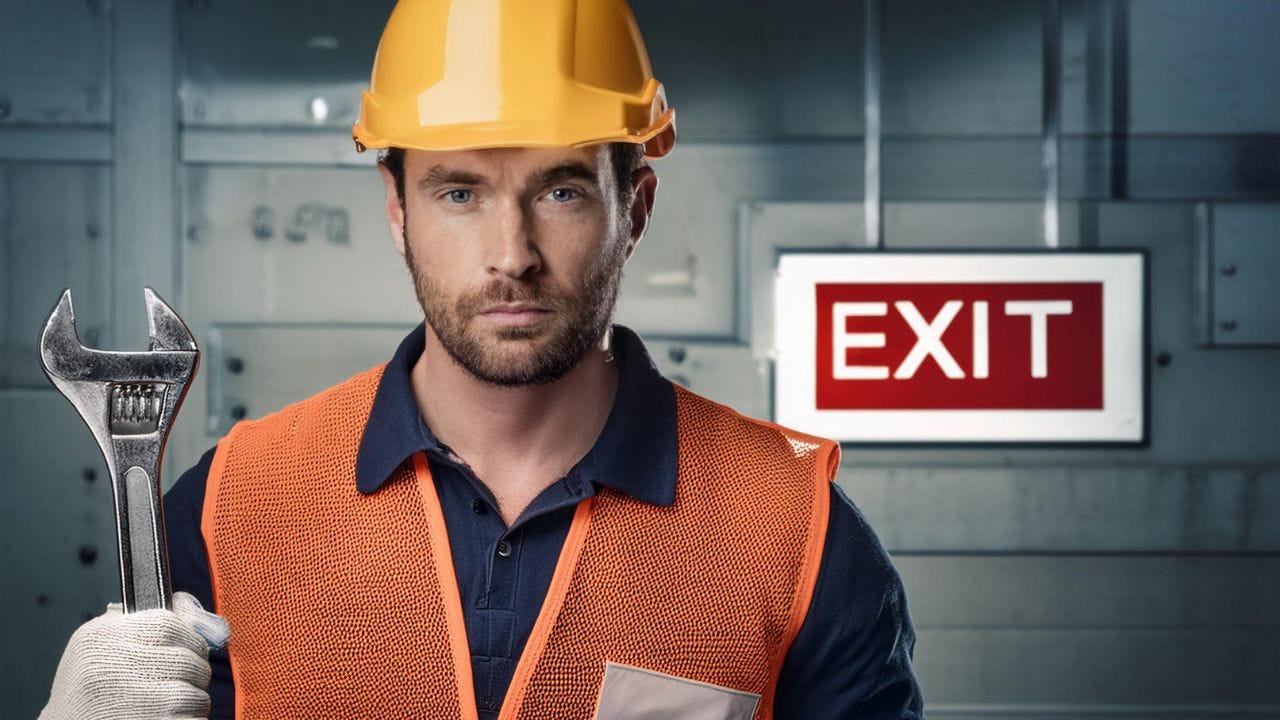When you no longer fit
I think we can all agree that we need to do something about climate change. I think we can all agree that, as an industry and as a society, we need to change our ways. And while we might not necessarily agree on the most appropriate path towards Net Zero, I think we can all agree that a change of construction equipment fuel will be inevitable.
I am not going to get into the Electric versus Hydrogen debate here. People far smarter than me are still figuring that out. And, in truth, it is currently like comparing oranges with pineapples.
Hydrogen might yet offer the best alternative for a certain weight class of machines. But it is not here yet. The fuel is not widely available. And we don’t know how much it is likely to cost. On the other hand, pure electric brings with a bunch of logistical issues. But it is available right now.
As I said, I am not going to get drawn into all of that.
And one of the main reasons I am not going down that path is that, in all likelihood, it will make very little difference to equipment operators.
I have driven both hybrid machines and all-electric machines. And aside from the lack of noise, you just can’t tell the difference.
The electric machines I have driven have been a little more responsive than their hydraulic counterparts. But the pedals and levers are all where they normally are and they all do precisely the same thing.
I haven’t had the opportunity to drive a hydrogen machine as yet. But, based on JCB’s hydrogen combustion engine, the same rules will apply.
The only real difference for an operator is remembering to put electric or hydrogen into the machine rather than diesel.
However, there is a breed of industry professionals upon which this switch will have a profound and lasting impact. And I wonder if this switch – when it comes – might prompt some of them to just call it a day, taking their knowledge, skills and experience with them.
The people I am talking about are those unsung heroes of the sector – The fitters and mechanics that keep the wheels and tracks of the industry turning.
Fitters and mechanics have already seen their roles undermined and diminished by a transition to powertrain systems so complex that they require maintaining by a scientist and a powerful laptop. But the switch to alternative fuels could have an even greater impact.
If the road to Net Zero turns out to be via hydrogen combustion engines, they’ll probably be just dandy. In the case of JCB, the hydrogen combustion engine is so similar to the diesel power pack from which it is derived that they are built and assembled on the same production line.
If however, the final switch is s all-electric or hydrogen fuel cell, that will present the industry’s fitters and mechanics with a stark choice.
They either go back to school and learn the inner workings of a hydrogen fuel cell. Or they hang up their spanners once and for all and leave the industry.
Obviously, any transition will be slow and gradual so – in all likelihood – today’s fitters could find themselves working on diesel, electric and hydrogen machines simultaneously. But there could come a time when the skills of a trained fitter are no longer required on a day-to-day basis.
What happens to them then.
Who is going to cover the cost of upskilling those already skilled people, just because someone has shifted the fuel goalposts? Will they actually want to go back to school and unlearn all that they know? And while I am about it, who stands to gain most from this?
As I mentioned earlier, construction equipment has been made so complex and sophisticated that the maintenance of some machines is now beyond the skill levels of those on site or in the company workshop. You have no option but to call out a dealer representative who will arrive with his computer and his sonic screwdriver.
Imagine how complex it will become if we switch to all-electric or all-hydrogen.
We have already seen a prototype machine from Bobcat that operates with a dry system – There are no fuel lines or hydraulics whatsoever – Everything is powered by electric motors and servos. Even the most skilled modern fitter will be left scratching his beard trying to fix something like that.
Like I said at the outset. I am all for saving the planet and limiting the impact of climate change. And if that means switching to alternative fuels, then so be it.
But know this. As we herald in a new era of hydrogen or electric power, we are bringing down the curtain on an era in which a man with a spanner could fix just about anything.





